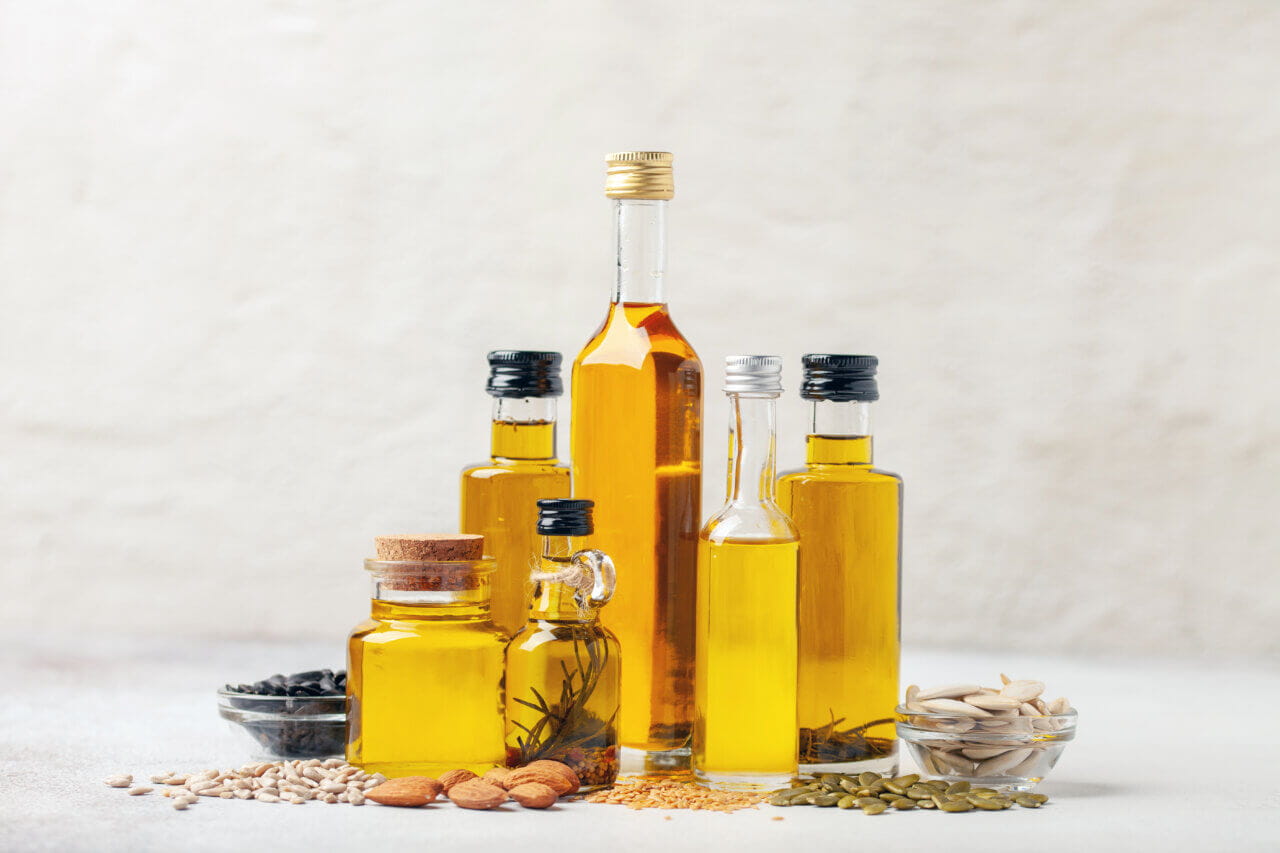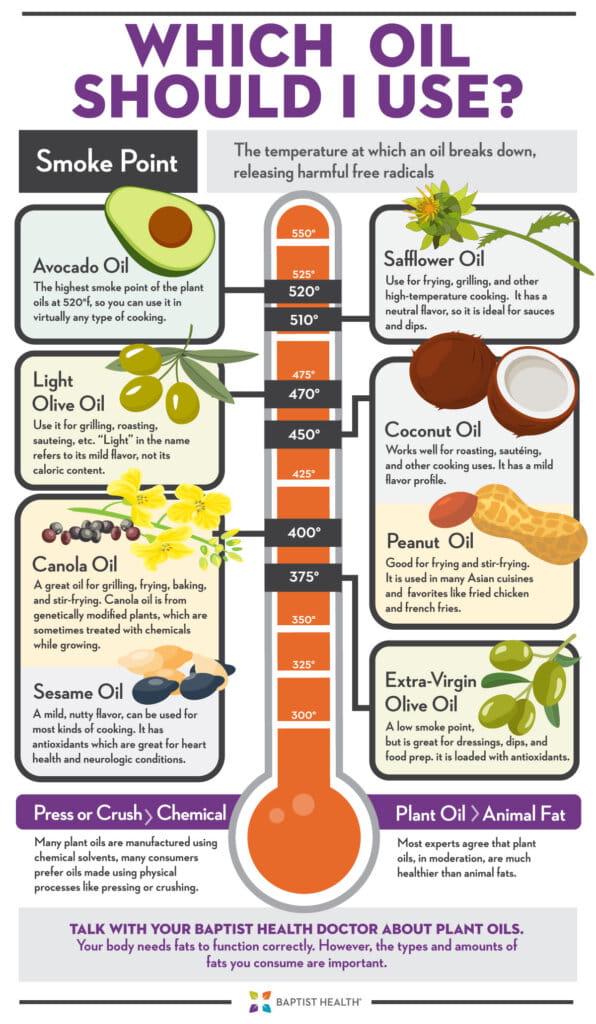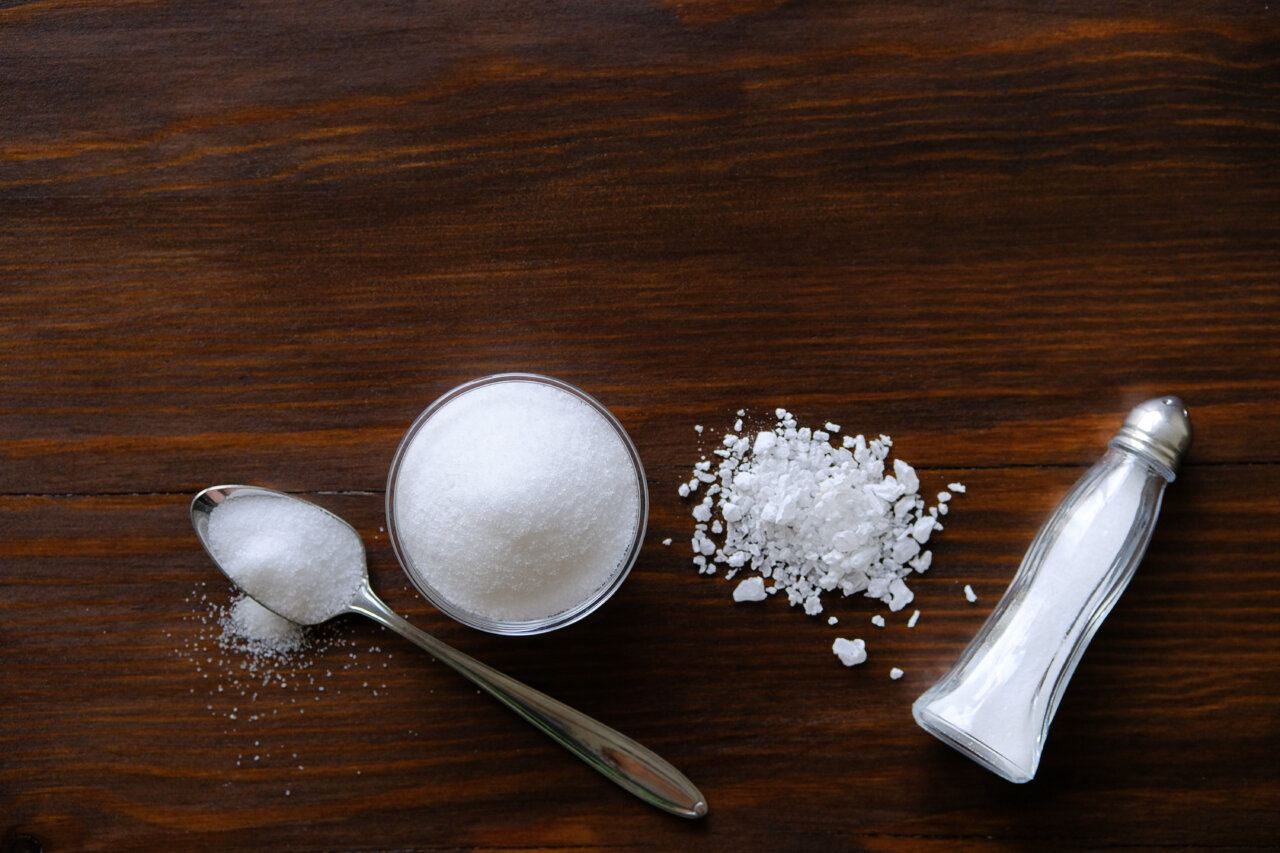Are Seed Oils Bad for You?

What are seed oils? A type of vegetable oil, they’re oils extracted from the seed of plants. They’re used for cooking and as ingredients in many processed foods, from cookies and microwave popcorn to salad dressings, margarine, and mayonnaise.
The consumption of seed oils, like soybean, sunflower, and grapeseed oil, has increased steadily over the last 100 years following the invention of technology and processes for extracting oil from plants.
What You Need to Know About Seed Oils
Many people use seed oils as healthy alternatives to butter. You may hear them referred to as “heart-healthy” oils. That’s because they contain a higher percentage of monounsaturated and polyunsaturated fats than the saturated fats in animal products, and they can help lower your “bad” LDL cholesterol.
However, some experts are concerned about how much seed oil people consume today. There are multiple reasons for that concern. For one thing, many seed oils are manufactured using chemical solvents. That worries some people, which is why many consumers prefer seed oils made using physical processes like pressing or crushing.
Scientists also point to the fact that many seed oils contain significant amounts of omega-6 fats. Omega-6 and omega-3 are essential fatty acids, meaning your body needs them. However, you need them in the correct ratio. While that desired ratio varies slightly between populations, it averages around 1 to 1 — in other words, equal parts.
However, the numbers have shifted significantly in recent decades. Experts believe it might now be as high as 20:1. That’s problematic since some researchers believe that too much omega-6 relative to omega-3 can cause chronic inflammation in the body. This condition may contribute to many common diseases, including heart disease, cancer, diabetes, and inflammatory bowel disease.
That being said, there are studies that do not support the idea that they cause chronic inflammation. For example, consuming significant amounts of linoleic acid, the most common omega-6 fat, doesn’t seem to increase inflammatory markers in the blood.
Clearly, more research is needed. Nevertheless, most experts agree that seed oils, in moderation, are much healthier than animal fats.

Which Vegetable Oil Should I Use?
As a consumer, the best way to approach vegetable oils is to understand that they can play an important role in your diet, but always in moderation. There’s currently no hard evidence that vegetable oils are harmful, but ample research shows that a balanced diet is the way to go.
Eight of the healthiest oils and their characteristics are:
1. Extra-virgin olive oil
Extra-virgin olive oil has heart-healthy fats, lots of antioxidants, and has been linked to a reduction in cancer risks. It’s great for dressings, dips, and food prep. One drawback is that it has a low smoke point — the temperature at which it starts to break down and release harmful free radicals. Consequently, you shouldn’t use it at temperatures above 375 degrees Fahrenheit.
2. Light olive oil
With many of the same benefits as its extra-virgin counterpart, light olive oil has a smoke point of approximately 470 degrees Fahrenheit. That means you can use it for grilling, roasting, sauteing, etc. Be aware that “light” in the name refers to its mild flavor, not its caloric content.
3. Canola oil
Made from rapeseeds, canola oil has a neutral flavor and a smoke point of 400 degrees Fahrenheit. These attributes make it a great oil for grilling, frying, baking, and stir-frying. Canola oil is from genetically modified plants (or GMOs for genetically modified organisms), which are sometimes treated with chemicals while growing, so that’s something to consider.
4. Coconut oil
Like olive oil, coconut oil comes in refined and unrefined (virgin) versions. With a smoke point of 450 degrees Fahrenheit, the refined type works well for roasting, sauteing, and other cooking uses. It has a mild flavor profile. The virgin variety has a lower smoke point of 350 degrees Fahrenheit and a more traditional coconut taste. Coconut oil has more saturated fat than olive oil, but the latest research suggests that type of fat isn’t as unhealthy as previously thought.
5. Avocado oil
Avocado oil is full of healthy monounsaturated fats, and it’s what’s known as a carrier oil, meaning it lets the flavors of other ingredients take center stage. It boasts the highest smoke point of the plant oils at 520 degrees Fahrenheit (for the refined version), so you can use it in virtually any type of cooking.
6. Sesame oil
With a smoke point of around 400 degrees Fahrenheit and a mild, nutty flavor, sesame oil can be used for most kinds of cooking. It has antioxidants called sesaminol and sesamol, which are great for heart health and may provide protection against specific neurologic conditions, including Parkinson’s disease. In addition, there’s a study suggesting it may help control blood sugar. So, like olive oil, sesame oil gets high marks for health benefits.
7. Safflower oil
With a smoke point of 510 degrees Fahrenheit, safflower oil can be used for frying, grilling, and other high-temperature cooking techniques. It’s high in unsaturated fatty acids and low in saturated fat, and it has a neutral flavor ideal for supporting the other flavors in sauces and dips.
8. Peanut oil
Frying and stir-frying, with their higher temperatures, are no problem for refined peanut oil and its smoke point of 450 degrees Fahrenheit. It’s used in many Asian cuisines and in favorites like fried chicken and French fries.
4 Oils That Aren’t Good for Cooking
Some oils aren’t good for cooking for one reason or another. Walnut oil has a low smoke point of around 350 degrees Fahrenheit, so it’s not good for many techniques. The same is true for flax oil, with an even lower smoke point of 225 degrees Fahrenheit.
Palm oil poses an ethical dilemma, as it’s associated with rainforest destruction. And fish or algae oil is best consumed in small doses as a dietary supplement.
Talk with Your Baptist Health Doctor About Seed Oils
Your body needs fats to function correctly. However, the types and amounts of fats you consume are important.
If you have questions about seed oils and your health, your doctor can answer them. If you don’t have a Baptist Health primary care physician, our online provider directory can help you find one.



